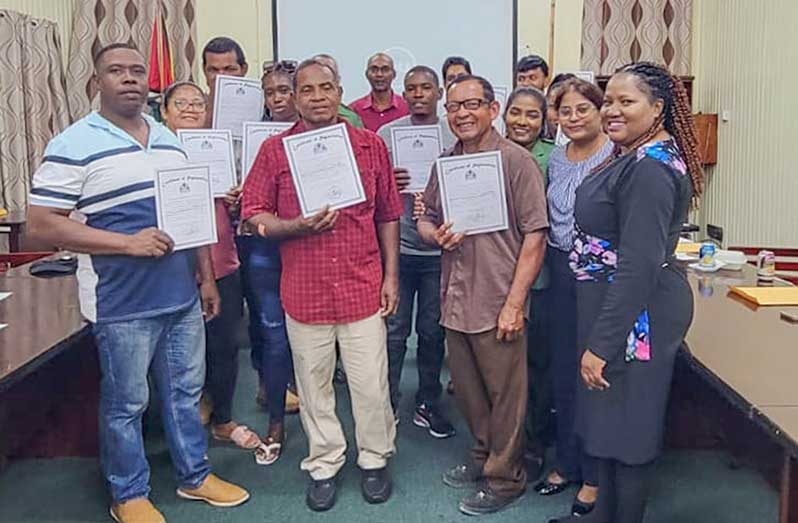TEN logging groups previously registered under the Friendly Societies Act on Monday officially transitioned to Co-operative Societies in a significant move aimed at boosting economic opportunities in Guyana’s forestry sector.
This milestone was marked by a ceremony where the groups received their official certificates of registration from the Department of Co-operatives and Friendly Societies, Ministry of Labour, in collaboration with the Guyana Forestry Commission (GFC).
The transition stems from a Memorandum of Understanding (MOU) signed earlier this year between the Department and the GFC, as part of a project funded by the European Union’s Forest Law Enforcement, Governance, and Trade Voluntary Partnership Agreement (EU FLEGT VPA). The EU FLEGT VPA is designed to enhance transparency, accountability, and the protection of rights within the forestry sector, aligning with international standards for sustainable forest management and trade.
The shift from friendly societies to co-operative societies is a strategic move. while friendly societies are charitable organisations limited in their capacity to engage in profit-making activities, co-operative societies operate as business entities. This change allows the logging groups to access forest concessions and engage in commercial operations, thus fostering economic growth and development in the forestry sector.
The government’s decision to support this transition underscores its commitment to enhancing the livelihoods of citizens, especially those in riverine and hinterland communities. By facilitating the shift to co-operative societies, the government aims to economically empower these communities, enabling them to take a more active and profitable role in Guyana’s forestry industry.
The initiative’s second phase will involve converting an additional 12 logging societies to co-operative societies, further expanding the economic opportunities available to community members. This continued effort is expected to drive sustainable development in the forestry sector, promoting both environmental stewardship and economic resilience.
This transformation represents a significant step towards improving the management and use of forest resources in Guyana, aligning with the broader goals of sustainable development and community empowerment. As these logging groups begin operating as co-operative societies, they are expected to contribute more effectively to the country’s economic growth while ensuring the sustainable use of its natural resources.



.jpg)








